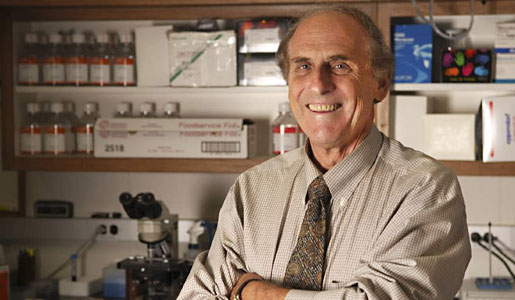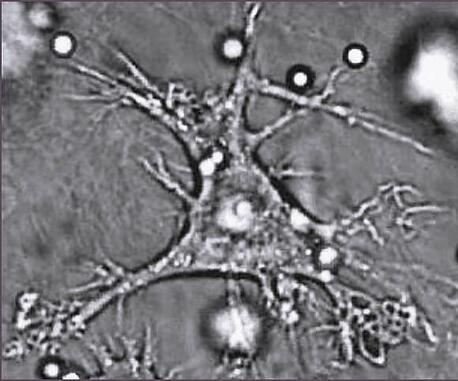The Researcher
The late Ralph M. Steinman, of New York’s Rockefeller University, was awarded the Nobel Prize in medicine on October 4th not 72 hours after he died of pancreatic cancer. The Nobel Prize committee doesn’t award prizes posthumously, but because they were not aware that Dr. Steinman, 68, had passed away, they are letting the award stand. From interviews with The New York Times and Businessweek, it is clear that Dr. Steinman’s friends and family were having a difficult time handling the jumble of sorrow and gladness that have been thrown their way, but they agreed on one thing: Dr. Steinman’s influence was so widespread, it will take more than one person to accept the award on his behalf.

(photo courtesy of http://www.nobelprize.org/)
His Work
Although Dr. Steinman initially faced severe public skepticism of his work, and many people doubted that his discovery of dendritic cells in 1973 would be of any practical use, today he is credited with being among the first to work in the field of immunotherapy. Combining his research with his own fight against pancreatic cancer, Dr. Steinman produced T-cells that were specific to his cancer by giving his tumors his own dendritic cells, a type of immune cells whose main job it is to process antigen material and present the information to other cells. His research did not save him, but it may have prolonged his life.

(photo courtesy of Wikimedia commons)
His Colleagues
Dr. Steinman was awarded the Nobel Prize in medicine along with his colleagues Dr. Jules A. Hoffman, a research director and board administrator at the National Center of Scientific Research in Strasbourg, France, and Dr. Bruce A. Beutler, currently Director of the Center for the Genetics of Host Defense at the University of Texas Southwestern Medical Center in Dallas, Texas, for their work in demonstrating how a body’s immune system recognizes an infection and works through an attack. Although Dr. Steinman won’t see where his research will lead, his legacy of scientific work may one day save more people than he imagined.
Other awards:
-
1998 – William B. Coley Award
-
1999 – Robert Koch Prize
-
2003 – Gairdner Foundation International Award
-
2007 – Albert Lasker Award for Basic Medical Research
-
2009 – Albany Medical Center Prize (shared with Charles A. Dinarello and Bruce Beutler;)
How has Dr. Steinman and his colleagues' work affected the way researchers treat cancer today? If you keep up with cancer research, or you are an active researcher yourself, please let us know your thoughts.

